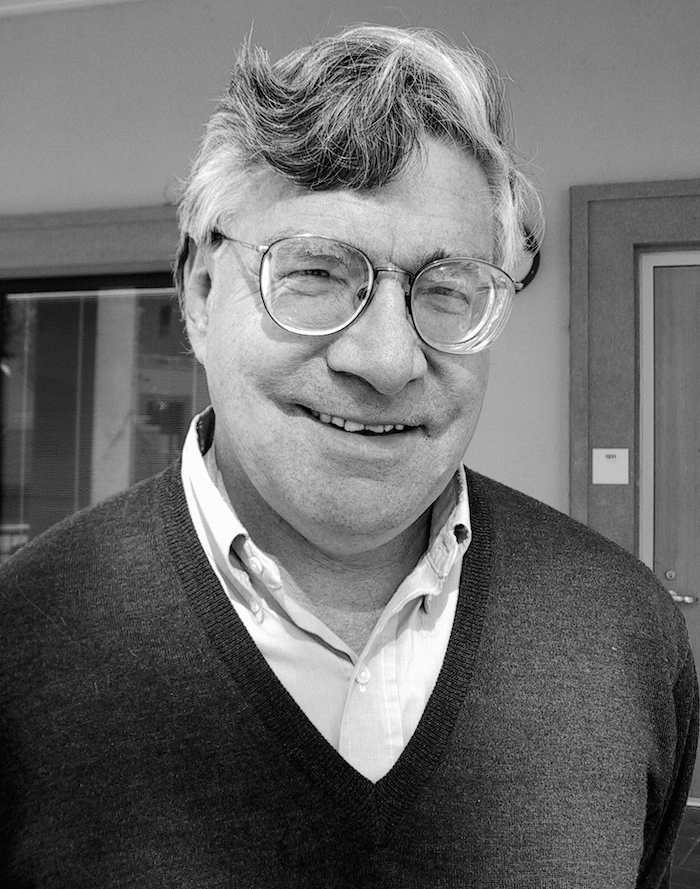Nelson Lichtenstein is Research Professor in the Department of History at UCSB, where he directs the Center for the Study of Work, Labor, and Democracy. He received his B.A. from Dartmouth College in 1966 and his Ph.D. from the University of California, Berkeley in 1974. Thereafter he worked in publishing in New York and taught at The Catholic University of America and at the University of Virginia before joining the UCSB faculty in 2001.
He is the author or editor of 18 books, including a biography of the labor leader Walter Reuther and State of the Union: A Century of American Labor (2002, 2013 revised). His most recent books are A Fabulous Failure: The Clinton Presidency and the Transformation of American Capitalism (2023); Capitalism Contested: The New Deal and Its Legacies (2020); Beyond the New Dal Order: U.S. Politics from the Great Depression to the Great Recession (2019); Achieving Workers’ Rights in the Global Economy (2016); The Port Huron Statement: Sources and Legacies of the New Left’s Founding Manifesto (2015);The Retail Revolution: How Wal-Mart Created a Brave New World of Business (2009, 2010); The Right and Labor in America: Politics, Ideology, and Imagination (2013); A Contest of Ideas: Capital, Politics and Labor (2013); and American Capitalism: Social Thought and Political Economy in the Twentieth Century (2006). He has served on the editorial board of numerous journals as well as the University of Illinois Press series in working-class history.
Professor Lichtenstein has held fellowships from the National Endowment for the Humanities, the Rockefeller and Guggenheim Foundations, the University of California, and from the Fulbright Commission and the Oregon Center for the Humanities. In 2008 he was elected to the Society of American Historians and in 2012 the Sidney Hillman Foundation awarded him its Sol Stetin Award for lifetime achievement in labor history. His reviews and opinion pieces have appeared in The Los Angeles Times, The New York Times, Dissent, New Labor Forum, American Prospect, Jacobin and academic journals. Reporters often seek is comments when they write on labor, politics, and supply chain issues.
He is married to Eileen Boris, the Hull Professor of Feminist Studies at UCSB.
- Andrew Elrod
- Maria Fedorova
- Serge Ferrari
- Jesse Ronald Halvorsen
- Neil Johnson-Rogers
- Kurt Newman
- Tim Paulson
- Samir Sonti
- Cody Stephens
Nelson Lichtenstein is currently writing a book entitled “Why Unions Matter,” a study of how and why the “labor question” has become such a pressing contemporary issue and why working-class collective action and institutions are vital to the preservation and revitalization of democracy, at home and abroad. Ranging widely from Starbucks baristas and University graduate students to Hollywood writers and those who labor for Apple and Microsoft, this book deploys the history of the U.S. labor movement to illuminate the very recent past. It will be published by Yale University Press in 2025.
Nelson Lichtenstein’s most recent interventions, journalistic and academic
“Will New Leadership Make the UAW Labor’s Vanguard Once Again? The Nation, February 2, 2023
“A Landmark Wage Increase at the University of California, Dissent, December 24, 2022.
“The Radical Imagination of Mike Davis,” Jacobin, November 8, 2022
“Railway Workers are Once Again Shaking Up Labor Standards Nationwide,” Los Angeles Times, September 15, 2022.
“Starbucks Workers are Demanding Management Stop Acting Like Petty Dictators,” Jacobin, April 29, 2022.
“Sectoral Bargaining in the United States: Historical Roots of a Twenty-First Century Revival,” in Angela Cornell and Mark Barenberg, eds., The Cambridge Handbook on Labor and Democracy (Cambridge University Press, 2022), 87-101.
“The Unionized Starbucks in Your Neighborhood,” American Prospect, December 22, 2021.
“Are We Witnessing a “General Strike” in Our Own Time?” Washington Post, November 18, 2021
“Is This a Strike Wave?” Dissent, October 25, 2021.
“America’s 40-Year Experiment with Big Business is Over,” New York Times, July 13, 2021, 22.
“Not All Labor Law Reforms are Created Equal,” Jacobin, June 3, 2021.
“What Next for Amazon Workers?” The Nation, April 22, 2021.
“The Age of Care: How Deindustrialization Helped Create a New Working Class, The Nation, April 19, 2021, 40-44.
“John Sweeney (1934-2021),” Jacobin, February 11, 2021.
“Opening the Door to a More Democratic UAW,” Labor Notes, January 19, 2021
“Sectoral Bargaining: Opportunity and Dilemma for American Labor,” in Dionne Pohler, ed., Reimaging the Governance of Work and Employment (ILR Press, 2020), 69-83.
“Economic Royalists and Their Kingdom in the New Deal Era and Beyond,” in Romain Huret, Nelson Lichtenstein, and Jean-Christian Vinel, eds., Capitalism Contested: The New Deal and Its Legacies (University of Pennsylvania Press, 2020), 179-98.
“It’s Workers Who Should Determine When their Workplace is Safe,” American Prospect on line, April 29, 2020.
“To Keep Meat on the Table, Workers Need a Voice,” Dissent on line, April 30, 2020
“World War II: When the Government Protected All Essential Workers,” Labor Notes on line, April 2, 2020
“Making History at Amazon,” Dissent on line, February 12, 2020
“From Clinton to Obama to Trump: The Politics and Political Economy of Health Insurance Reform,” in Francois Vergniolle de Chantal, ed., Obama’s Fractured Legacy: The Politics and Policies of an Embattled Presidency (Edinburgh University Press, 2020), 236-268.
“Dreamers with Shovels: How the First New Deal Remade America,” American Prospect, December 2019, Vol. 30, no. 5, 16-22.
“Are Trade Unions and Their Members ‘Populist’”? IdeAs on line, November 8, 2019, 1-15.
“An Elitist Finger in the Public’s Eye,” The Chronicle of Higher Education, Vol. 66, no. 11, November 15, 2019.
Capital and Class (History 167cb), an upper division course exploring the transformation of business, politics, and the working-class during the last century.
The New Deal and After (History 166b), an upper division course tracing the triumphs and failures of the second most important transformative event in U.S. history, after the Civil War.
Internship in Labor History (History 167q), a undergraduate proseminar that puts students in the “field” in order to study contemporary transformations in the status of the working class.

